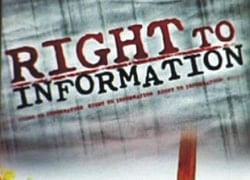Law Analysis
Two years of the RTI Act
Md. Raisul Islam Sourav
 |
ghananewsagency |
Right to information along with access to information is one of the most fundamental rights enjoyed by a citizenry. The Right to Information (RTI) Act has its origins in 2008, when the RTI Ordinance was drafted and subsequently passed into law by Sheikh Hasina's government.
Disturbingly, but not surprisingly, certain elements in the political establishment now want to minimize the scope of the act. This has its roots in the fact that this is the only law which is solely enacted for citizens to protect their rights.
Although we have an ocean of laws, only the RTI Act creates an opportunity for average citizens to investigate day-to-day functions/policies of public organs.
This legislation is believed to have increased transparency and accountability and importantly, reduced corruption. At present, more than 90 countries have RTI laws, among them Nepal and India.
Firstly, the press began to demand passage of a law that would protect their rights as early as 1983. After the late 1990s, NGOs began to demand access to information, which the RTI Act eventually afforded. As a result, a commission proposed a draft law in 2002.
Subsequently, the army backed caretaker government created a presidential ordinance called “Right to Information Ordinance, 2008”. Finally, the newly elected parliament legitimized this ordinance on March 29th, 2009 at its opening session. Finally, the RTI Act became law on April 5 of that year.
Right to information is guaranteed as a fundamental human right under Article 19 of UDHR and the ICCPR. Correspondingly, the Constitution of the People's Republic of Bangladesh also recognizes rights under Articles 7, 11 and 39.
A number of existing laws i.e. The Official Secrets Act, 1923, The Special Powers Act, 1974, Rules of Business, 1996 have a provision regarding non-discloser of information.
However, Section 3 of said Act provides that the present law will prevail over all existing laws. But the law itself contains a list over 20 public bodies from which people cannot claim information as of right (S. 7 & 32).
The list is extensive and the term “national security” is very vague and dark in nature though it is not defined in the law. The justifications for claming this immunity is also not specified. Experiences have shown that typically governments hide information for the sake of these types of vague terms. In addition, a mentionable figure of national government is still reluctant to deliver data.
However, national defense forces, law enforcement, security and spy agencies are not bound to supply information unless it relates to corruption or human rights violations. Subsequently, they are obligated to provide essential information within the next 24 hrs by virtue of Section 9(4) of the RTI Act.
Another matter of regret under the RTI Act: corporate houses, multinational and pharmaceuticals companies, foreign brands and the private sector are beyond the authority of this law. Are these places free from corruption?
Executive bodies periodically furnish agreement with foreign companies concerning natural resources and other public interest related matters. In most of the preceding cases, these foreign companies did gross harm to the natural or physical environment. Nevertheless, we never can know about the contents of the agreement. This is the inherent nature of executive organs.
Journalists often require information for everyday reporting. However, the RTI Act requires twenty days to deliver information after receiving an application. The mandated delay in delivering data makes this law worthless for the media.
However, exceptions can sometimes be made for certain correspondents. Media outlets can ask for this privilege if it is deemed in the public interest.
The criteria for selecting Chief Information Commissioner is indistinct because as per S. 15, they will be “persons with “broad knowledge” and “experience” in law, justice, journalism, education, science, technology, information, social service, management, or public administration.”
The term “broad knowledge and experience” does not provide any specification about the qualification of the persons and this vagueness creates scope to the ruling party to choose the people of its own choosing.
Additionally, the RTI Act is not especially friendly for the disabled or indigenous persons, and potentially holds wide-ranging ramifications that have yet to be addressed by the government.
According to info commission after the first year of enactment of the RTI Act, almost half of Bangladeshis are in the dark about the RTI Act. It is the responsibility of the concerned public and private authorities to build awareness on the RTI Act.
Furthermore, the allocated budget for addressing awareness of the RTI Act is inadequate. The procedures to apply for information under the RTI Act are also unduly complicating. It requires written application in a prescribed form, which an educated person may not have a problem doing but a person who cannot read or write is at a severe disadvantage.
Finally, from an optimistic point of view, it can be said that the Right to Information Act could be a crucial weapon to promulgate war against every sort of secrecy. Recognition of citizens' right to information can ensure that democracy is available to the masses and not just the few able to manipulate the system.
The writer is Student of Law at University of London, UK.